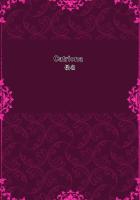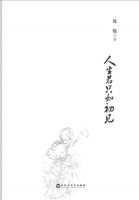These are the moral, intellectual, and æsthetic feelings.Concords of sounds, of colors, of lines, logical consistencies, teleological fitnesses, affect us with a pleasure that seems ingrained in the very form of the representation itself, and to borrow nothing from any reverberation surging up from the parts below the brain.The Herbartian psychologists have distinguished feelings due to the form in which ideas may be arranged.A mathematical demonstration may be as 'pretty,' and an act of justice as 'neat,' as a drawing or a tune, although the prettiness and neatness seem to have nothing to do with sensation.We have, then, or some of us seem to have, genuinely cerebral forms of pleasure and displeasure, apparently not agreeing in their mode of production with the 'coarser ' emotions we have been analyzing.
And it is certain that readers whom our reasons have hitherto failed to convince will now start up at this admission, and consider that by it we give up our whole case.Since musical perceptions, since logical ideas, can immediately arouse a form of emotional feeling, they will say, is it not more natural to suppose that in the case of the so-called 'coarser'
emotions, prompted by other kinds of objects, the emotional feeling is equally immediate, and the bodily expression something that comes later and is added on?
In reply to this we must immediately insist that æsthetic emotion, pure and simple , the pleasure given us by certain lines and masses, and combinations of colors and sounds, is an absolutely sensational experience, an optical or auricular feeling that is primary, and not due to the repercussion backwards of other sensations elsewhere consecutively aroused.To this simple primary and immediate pleasure in certain pure sensations and harmonious combinations of them, there may, it is true, be added secondary pleasures; and in the practical enjoyment of works of art by the masses of mankind these secondary pleasures play a great part.The more classic one's taste is, however, the less relatively important are the secondary pleasures felt to be in comparison with those of the primary sensation as it comes in. Classicism and romanticism have their battles over this point.Complex suggestiveness, the awakening of vistas of memory and association, and the stirring of our flesh with picturesque mystery and gloom, make a work of art romantic.The classic taste brands these effects as coarse and tawdry, and prefers the naked beauty of the optical and auditory sensations, unadorned with frippery or foliage.
To the romantic mind, on the contrary, the immediate beauty of these sensations seems dry and thin.I am of course not discussing which view is right, but only showing that the discrimination between the primary feeling of beauty, as a pure incoming sensible quality, and the secondary emotions which are grafted thereupon, is one that must be made.
These secondary emotions themselves are assuredly for the most part constituted of other incoming sensations aroused by the diffusive wave of reflex effects which the beautiful object sets up.A glow, a pang in the breast, a shudder, a fulness of the breathing, a flutter of the heart, a shiver down the back, a moistening of the eyes, a stirring in the hypogastrium, and a thousand unnamable symptoms besides, may be felt the moment the beauty excites us.And these symptoms also result when we are excited by moral perceptions, as of pathos, magnanimity, or courage.The voice breaks and the sob rises in the struggling chest, or the nostril dilates and the fingers tighten, whilst the heart beats, etc., etc.
As far as these ingredients of the subtler emotions go, then, the latter form no exception to our account, but rather an additional illustration thereof.In all cases of intellectual or moral rapture we find that, unless there be coupled a bodily reverberation of some kind with the mere thought of the object and cognition of its quality; unless we actually laugh at the neatness of the demonstration or witticism; unless we thrill at the case of justice, or tingle at the act of magnanimity; our state of mind can hardly be called emotional at all.It is in fact a mere intellectual perception of how certain things are to be called -- neat, right, witty, generous, and the like.Such a judicial state of mind as this is to be classed among awarenesses of truth; it is a cognitive act.As a matter of fact, however, the moral and intellectual cognitions hardly ever do exist thus unaccompanied.The bodily sounding-board is at work, as careful introspection will show, far more than we usually suppose.Still, where long familiarity with a certain class of effects, even æsthetic ones, has blunted mere emotional excitability as much as it has sharpened taste and judgment, we do get the intellectual emotion, if such it can be called, pure and undefiled.And the dryness of it, the paleness, the absence of all glow, as it may exist in a thoroughly expert critic's mind, not only shows us what an altogether different thing it is from the 'coarser' emotions we considered first, but makes us suspect that almost the entire difference lies in the fact that the bodily sounding-board, vibrating in the one case, is in the other mute."Not so very bad " is, in a person of consummate taste, apt to be the highest limit of approving expression." Rien ne me choque " is said to have been Chopin's superlative of praise of new music.A sentimental layman would feel, and ought to feel, horrified, on being admitted into such a, critic's mind, to see how cold, how thin, how void of human significance, are the motives for favor or disfavor that there prevail.The capacity to make a nice spot on the wall will outweigh a picture's whole content; a foolish trick of words will preserve a poem;
an utterly meaningless fitness of sequence in one musical composition set at naught any amount of 'expressiveness' in another.















